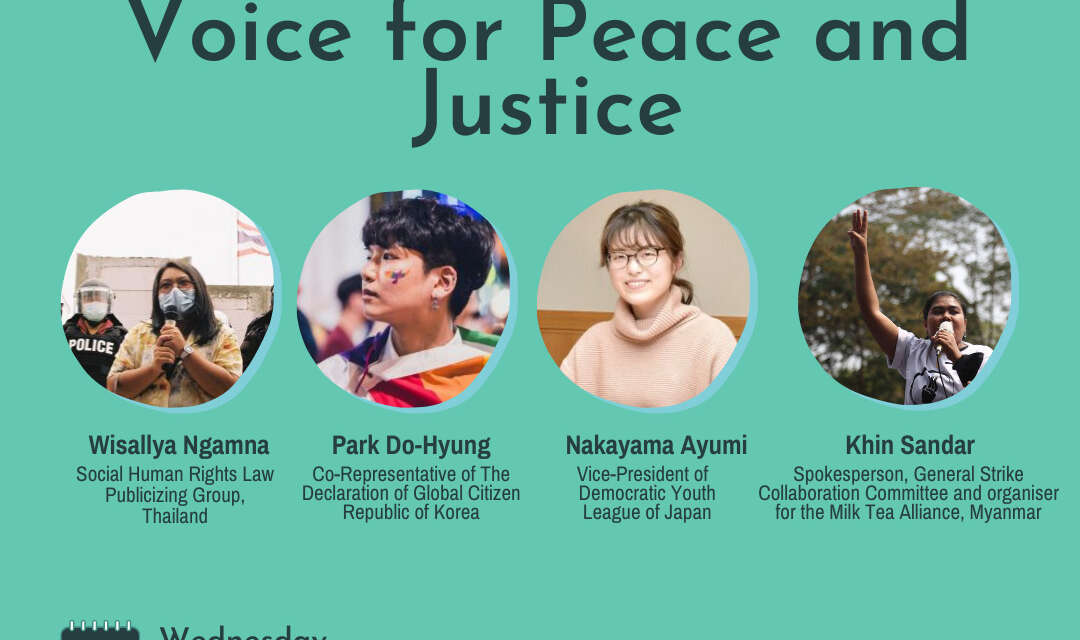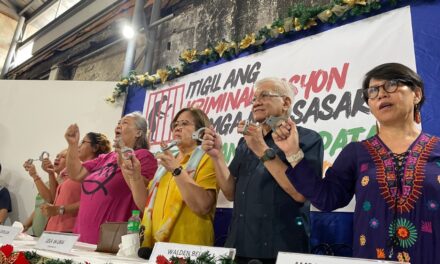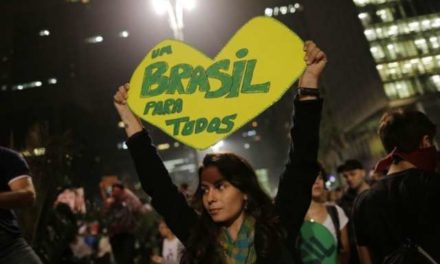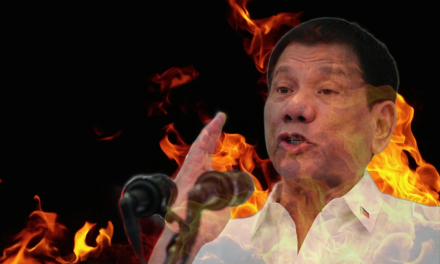Good morning, good afternoon, and good evening to everyone, wherever you are. My name is Galileo and I am from Focus on the Global South, a collective of committed activists that combines research and analysis, popular education, and strong collaborations with grassroots organizations and social movements to build common positions and collective actions. It is a great honour and privilege to learn from the “gen” or the roots and the diverse experiences of youth activists in this shared space of Asian youth and youth at heart. Thank you International Peace Bureau for the invitation and opportunity to contribute my bit.
Hearing the discussions and plethora of perspectives shared by our young speakers, it is clear that the common thread that binds together our individual, communal, and universal experiences is our common desire and struggle for peace and justice. However, it is important to highlight the distinct experiences of each group, and in this regard, the Gen Z or loosely, those born between 1997 and 2012. In four years’ time, they will comprise a quarter of the total population of the Asia-Pacific region, the same share as the Gen Y or Millennials, the preceding generation which I belong to.
We have learned in this shared space the diverse involvement and initiatives of the youth in activism: 1) from the push for nuclear abolition, opposition to wars of aggression, and overcoming capitalism towards scientific socialism in Japan as shared by Nakayama Ayumi-san; 2) to the candlelight demonstrations in South Korea and Park Do-Hyung’s sharing of the Silent March and Lennon Wall as displays of pan-Asian solidarity for democracy; 3) from the Umbrella Revolution in Hong Kong, pro-democracy protests in Thailand, and the symbolism of the three-finger salute against dictatorship as shared by Khun Wisallya Ngamna; 4) to Khin Sandar’s sharing of Burma’s civil disobedience movement against the military coup and junta.
We have also seen the intersections and connections linking peoples, communities, and struggles beyond boundaries: 1) the political activism of Gen Z complemented by their exposure to information and communication technologies in their upbringing and their embrace of the digital era, notwithstanding the misgivings some may have about digitalization and the inequity and insecurity that it spawns; 2) the younger generation’s rejection of political vanguards and penchant for leaderless movements that challenge traditional structures and ways of working as espoused by the Milk Tea Alliance; 3) the youth’s creative expressions of cultures of solidarity and resistance both in the online and offline world.
Similarly, we have also seen the unprecedented challenges faced by the youth across the world. There is no question that children and the youth are the ones who suffer the most in times of conflict and unpeace in an unjust world. In the midst of the COVID-19 pandemic, they find themselves barely keeping their heads above the confluence of uncertainties and insecurities, in the wreckage of a war-torn and climate-ravaged planet. Young people have been affected in many dimensions of their lives—physically, mentally, emotionally, and even financially. Minors are barred from going out of their homes following strict quarantine protocols; students are forced to adapt to an education that has shifted to online mode and distance learning; fresh graduates are entering a job market with record-breaking levels of economic recession, under- and unemployment, and enormous uncertainties.
One particular trait of the Gen Z or Zoomers that I want to underscore in my closing remarks is that most of them are coming of age and entering into adulthood in a fast and ever-changing world disrupted by the COVID-19 pandemic. At the same time, I want to challenge the unfair responsibility that is being forced upon the youth, with the messianic expectations of many that the youth are here to correct the mistakes of the previous generations. A popular saying in the Philippines—my home country—goes, “Ang kabataan ang pag-asa ng bayan” or “The youth are our hope for the future.” While at first glance it evokes feelings of trust and confidence on the youth, there is also the danger of placing an unnecessary burden upon their shoulders, seeing them as heroes who are here to save the world.
We explicitly see this in the lead up to the general elections next year and the importance placed in the “youth vote” that would constitute one-third of the voting population. Ironically, the Filipino Gen Z are also often branded as apathetic to political and social issues, uncritical, and susceptible to disinformation. There is also the notion that the youth are mere passive inheritors of the future—whatever that “future” may be—forever disempowered from confronting the unpeace and injustice of the prevailing world order.
But as we have witnessed and continually see in the region and across the globe, the fact is that the youth are standing up and resisting against neoliberal and authoritarian regimes and building alternatives for systemic change. They are actively reclaiming their stake in society and the future through climate strikes, peace marches, grassroots protests, and transnational solidarity initiatives. Just before this webinar, I was in a political education session with youth leaders who are doing the thankless yet extremely necessary work of community organizing, amidst the COVID-19 pandemic at that.
As we reach the conclusion of this shared space, we see very clearly the dynamism of the youth who cut across sectors, groups, and peoples. They are indubitably a source of new energies, new ideas, and new ways of reimagining the world. They play a vital role in the regeneration of peoples’ movements and the recovery efforts towards a new world post-COVID-19, a world that is more just, peaceful, and sustainable. But it must also be emphasized that intergenerational justice calls for intergenerational accountability; that just and lasting peace entails learning from each other’s histories and realities. Hence, the importance of strengthening the intergenerational links among peoples, across generations.
Let me end by going back to what Jun Kyu Lee mentioned at the beginning of this webinar: that it is the time to listen to the youth. Many times the youth are asked to contribute their ideas; many times the youth are asked to voice out their opinions about the world; many times the youth are asked to share their dreams for the future. We have done so and will continue to do so. But we ask each of you to not only listen—instead take action together with us—for all our collective future and the future generations.










